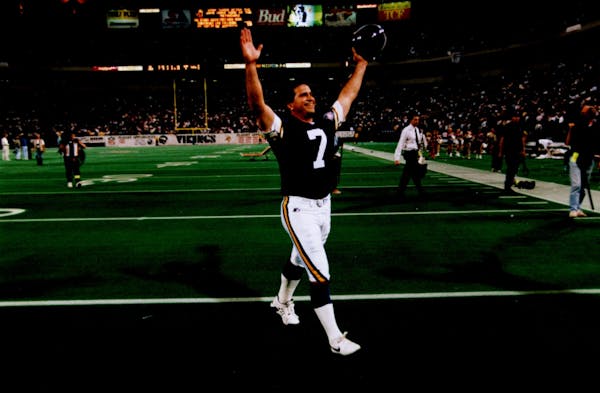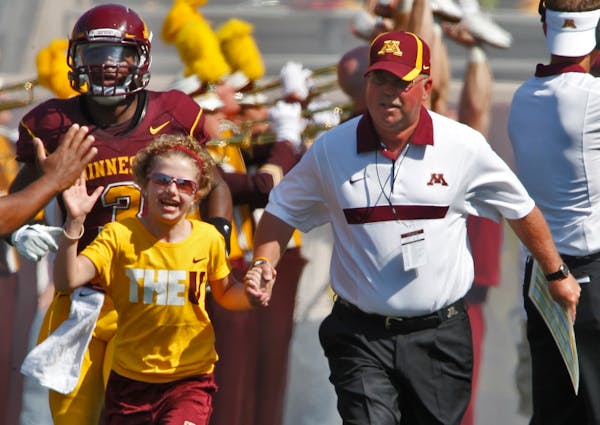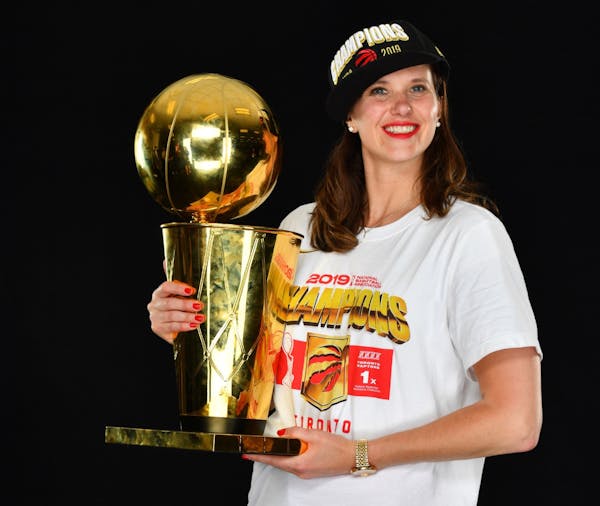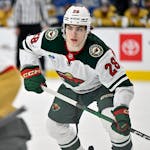(Editor's note: This week columnists Chip Scoggins, Jim Souhan and Patrick Reusse revisit some of their favorite people from stories of years past. In the fourth of a six-part series, Chip checks in on Willie Mitchell, who played for the Wild from 2001 to '06.)
Willie Mitchell was celebrating his retirement from hockey in France's Champagne region in 2016 with his wife, Megan, and a business partner when the idea of buying a resort on Vancouver Island was hatched.
Tofino is a small village on the west coast of the island blessed with spectacular views of the Pacific Ocean, sandy beaches and lush mountains stocked with an abundance of wildlife.
"A cool spot on the planet," said Mitchell, a fan favorite in the early days of the Wild's existence.
Mitchell and two partners bought Tofino Resort and renovated it. Business skyrocketed, and 2020 was on pace to exceed budget projections again until "the world turned sideways," Mitchell said.
He became another small business owner handed tough circumstances by COVID-19. Mitchell spent one recent afternoon on a conference call with the province's health authority listening for updates and guidance.
"I'm hunkered down living here," he said. "I bounce between Vancouver and Tofino. I have a 3-year-old [son] who is just amazing and fun. We're pretty lucky. If there's a place to be quarantined, we're sitting in it. I'm looking out my window right now. Beautiful mountains, ocean. Yeah, it's not bad."
Ever the optimist, Mitchell earned a reputation as a hard-nosed defenseman who used a long stick and had a high pain tolerance. He appeared in 900-plus games over 15 NHL seasons, paraded with the Stanley Cup twice as a member of the Los Angeles Kings and played a pivotal role in the Wild's unexpected run to the 2003 conference finals.
"That was a pretty special time," he said of the '03 postseason.
The Wild became the first team in NHL history to overcome two 3-1 series deficits against Colorado and then Vancouver. The improbability of winning six consecutive elimination games as a lower seed speaks to the unique makeup of that group.
"I won two Stanley Cups, and I don't think I've heard a building louder than in '03 [on] Parkie's goal, right?" he said, referring to Richard Park's overtime goal in Game 6 against Colorado. "Just being the underdog and no expectations and going on the run we did … it was just magic."
Mitchell needed more grit than magic to stay in the lineup. He suffered a fractured cheekbone in Game 7 against Colorado and a torn ligament in one of his wrists in Game 4 against Vancouver. He kept logging heavy minutes.
"In professional sports, you be there for your teammates," he said. "That's the essence of hockey."
The first injury occurred when he deflected a shot and the puck flew up and struck his face. He missed only a few shifts. Not even a broken bone in his face slowed him.
"Hockey players are known for being tough; I would say hockey players are kind of stupid sometimes too," Mitchell said. "That was one for me. Tough and stupid."
He underwent surgery the next morning — his 26th birthday — and had his helmet modified and fitted for a shield to protect 56 stitches on the side of his head.
"To be honest," he said, "that was the easier one."
The real doozy came on a hit by Todd Bertuzzi along the boards in Game 4 of the Vancouver series.
"That one, oof," he said. "I tore my ligament right off."
Megan, his future wife, had to dress him before the flight to Vancouver because he couldn't put on socks or tie his shoes. In the morning skate before Game 5, Mitchell was unable to shoot or pass the puck without wincing "like you're putting your hand on a burner," he said.
He remembers assistant coach Mario Tremblay pulling him aside, putting his arm around him and saying, "Willie, you're looking good."
"I thought I was going to be an embarrassment," Mitchell said. "That fear of being the one who cost everyone got me through that game. I thank my lucky stars that we got a lead and that allowed me to play a little bit more cautious."
The Wild won 7-2. Mitchell logged 22 minutes of ice time.
"Is that what it was?" he said, breaking into a loud laugh.
Mitchell refused to say the words "Stanley Cup" in interviews that postseason. He always called it "that big silver thing."
He finally got to hold that silver thing in 2012 and '14 with the Kings. He experienced a weird sensation when it was his turn to skate with the Cup. He saw his entire hockey career — starting as a young kid — "flash frame" in his mind. He still finds it hard to explain.
"I lived my whole hockey career in the 25 seconds that I held that Cup," he said. "It was crystal clear. That's the moment. All your sacrifices, the adversity."
A concussion ended Mitchell's career at age 39 in 2016 with the Panthers. The risk of long-term damage became too much to continue. He says not being there to help his team in the playoffs as the captain was the hardest decision he's ever had to make.
"I picked myself for the first time in my life," he said.
He has a new challenge on his hands now as a business owner navigating a global pandemic. He spent roughly eight months in Tofino last year making sure things ran smoothly at his resort.
Hey, Willie, retirees aren't supposed to work that hard.
"It's hard sometimes to turn off the Type A, right?" he said. "That's how I played the game of hockey. My name was everything. I wanted teammates to respect me and people on the outside to respect my game. I think with the property here it's the same way. Success is the only answer."









